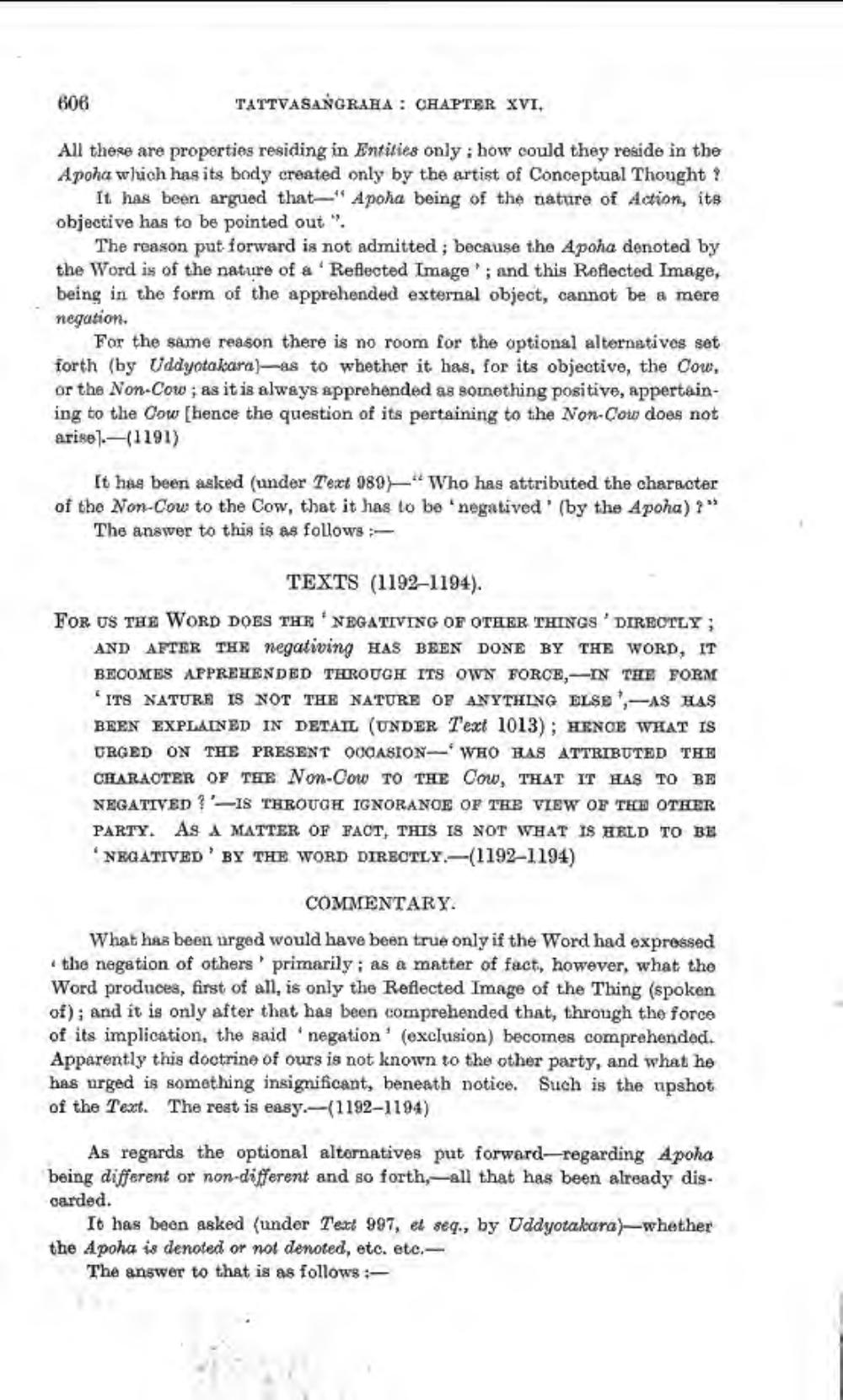________________
606
TATTVASANGRAHA : CHAPTER XVI,
All these are properties residing in Entities only: how could they reside in the Apoha wluch has its body created only by the artist of Conceptual Thought ?
It has been argued that-"A poha being of the nature of Action, its objective has to be pointed out"
The reason put iorward is not admitted ; because the Apona denoted by the Word is of the nature of a 'Reflected Image'; and this Reflected Image, being in the form of the apprehended external object, cannot be a mere negation.
For the same reason there is no room for the optional alternatives set forth (by Uddyotakara)-as to whether it has, for its objective, the Cowe, or the Non-Cow; as it is always apprehended as something positive, appertaining to the Cow (hence the question of its pertaining to the Non-Cow does not arise).—(1191)
It has been asked (under Text 989) "Who has attributed the character of the Non-Cow to the Cow, that it has to be negatived' (by the Apoha) ?"
The answer to this is as follows:
TEXTS (1192-1194). FOR US THE WORD DOES THE NEGATIVING OF OTHER THINGS 'DIRECTLY ;
AND AFTER THE negativing HAS BEEN DONE BY THE WORD, IT BECOMES APPREHENDED THROUGH ITS OWN FORCE --IN THE FORM
ITS NATURE IS NOT THE NATURE OF ANYTHING ELSE-AS LAS BEEN EXPLAINED IN DETAIL (UNDER T'ext 1013); HENCE WHAT IS URGED ON THE PRESENT OODASION-WHO HAS ATTRIBUTED THE CHARAOTER OF THE Non-Cow TO THE Cow, THAT IT HAS TO BE NEGATTVED ? '-IS THROUGH IGNORANCE OF THE VIEW OF THE OTHER PARTY. AS A MATTER OF FACT, THIS IS NOT WHAT IS HELD TO BE NEGATIVED BY THE WORD DIRECTLY.-(1192-1194)
COMMENTARY.
What has been urged would have been true only if the Word had expressed the negation of others primarily; as a matter of fact, however, what the Word produces, first of all, is only the Reflected Image of the Thing (spoken of); and it is only after that has been comprehended that, through the force of its implication, the said negation' (exclusion) becomes comprehended. Apparently this doctrine of ours is not known to the other party, and what he has urged is something insignificant, beneath notice. Such is the upshot of the Text. The rest is easy.-(1192-1194)
As regards the optional altornatives put forward-regarding Apoha being different or non-different and so forth-all that has been already discarded.
It has been asked (under Text 997, et seq., by Uddyotakara)-whether the Apoha is denoted or not denoted, etc. etc.
The answer to that is as follows:




